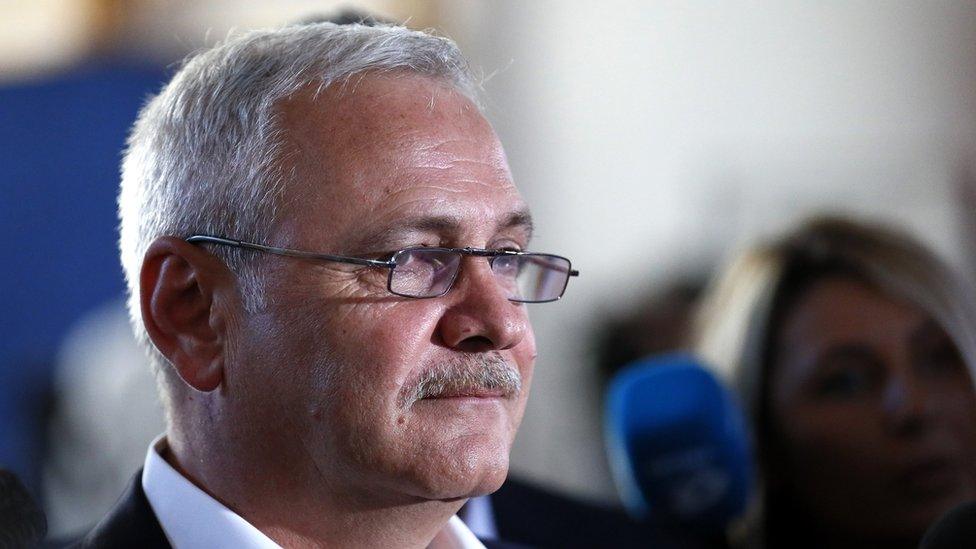Dancila's Romanian government falls in no-confidence vote
- Published
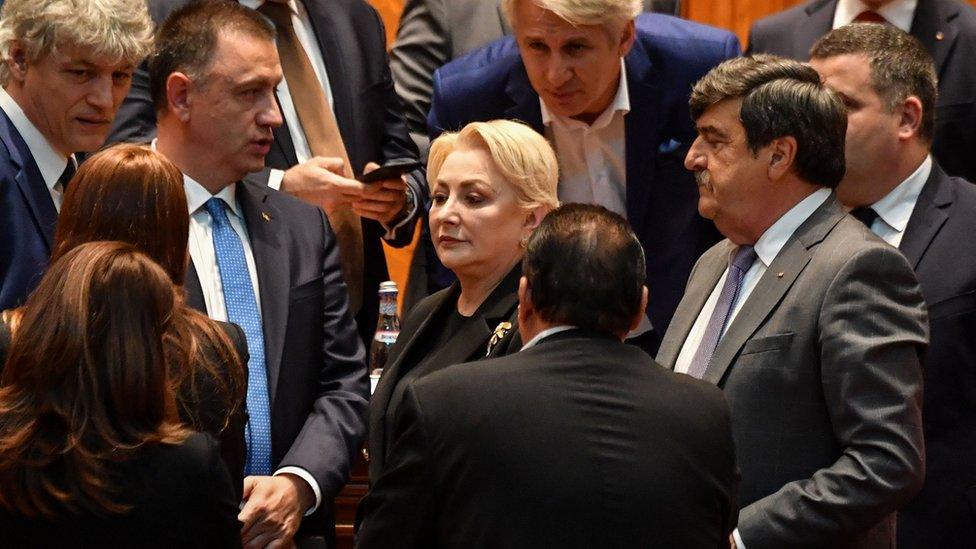
Viorica Dancila is consoled by members of her cabinet after losing a vote of no-confidence
Romania's government has collapsed after losing a no-confidence vote weeks ahead of a presidential election.
Prime Minister Viorica Dancila was defeated amid dramatic scenes by 238 votes in favour of the motion - five more than needed in the 465 house.
She was appointed in January 2018 - the third prime minister in seven months. Romania has for years been plagued by government corruption scandals.
President Klaus Iohannis will now choose a replacement government.
He will hold talks with all parliamentary parties, with new elections due in late 2020.
Ms Dancila's Social Democrats (PSD) have been in power since 2016.
However, Ms Dancila lost her parliamentary majority in August after a succession of setbacks.
Her centre-left party suffered huge losses at the European elections in May, coming second with less than 23% of the vote behind the National Liberal party.
In the same month Liviu Dragnea, the president of the PSD who was widely viewed as the most powerful figure in Romanian politics, was jailed for corruption after he was found guilty of having two party members paid by a state agency for fake jobs.

End of a turbulent time in power
By Nick Thorpe, BBC Central Europe correspondent
The fall of Viorica Dancila's government began when her coalition partner quit in August.
As Romania's fourth prime minister in three years, she faced a constant battle with President Klaus Ioannis, power struggles within her own party, and ridicule from the opposition.
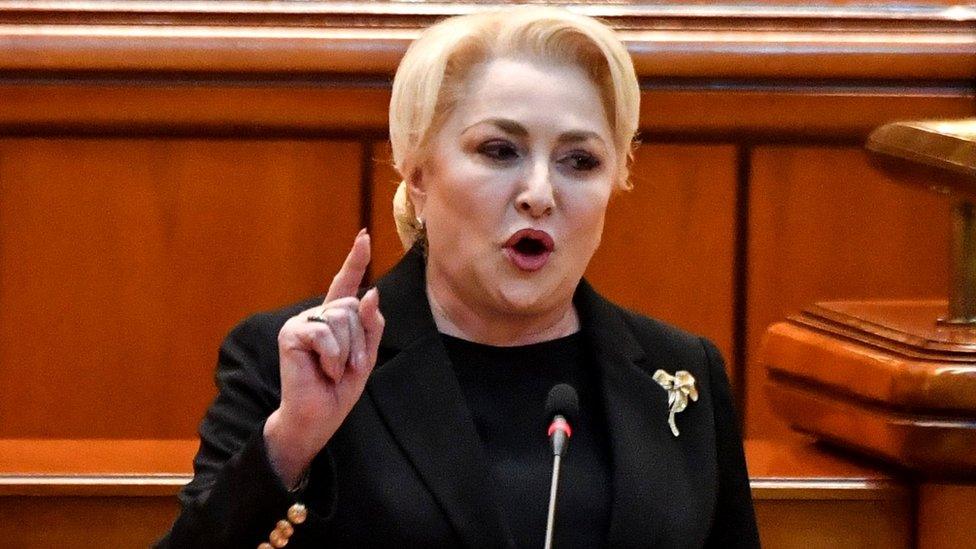
Viorica Dancila has faced months of political setbacks
President Iohannis now has three options for a new government: a centre-right coalition led by the National Liberals a centre-left alliance under former PM Victor Ponta, or a caretaker cabinet.
Romania's budget deficit is soaring, and opposition leaders are reluctant to push through the necessarily restrictive 2020 budget in an election year. The presidential vote is only a month away.

Ludovic Orban, the leader of the opposition National Liberal party, said the result of the no-confidence vote had "stopped the Social Democrat Party from hurting Romania".
Ahead of Thursday's vote in Bucharest, Ms Dancila told members of her party to abstain in an attempt to avert a rebellion. She tried to encourage others to back her by pledging to provide €300m ($330m; £270m) to a number of local communities.
Ms Dancila, who is also a candidate in the presidential ballot due to be held on 10 November, became Romania's first female prime minister in January 2018.
Her appointment followed the sudden resignation of Mihai Tudose, who quit after his own party withdrew its backing.
Steve Rosenberg explains how "people power" brought change to Romania in 2017
In 2017, Romania's government scrapped a controversial decree that would have shielded many politicians from prosecution for corruption. The move followed weeks of street protests.
- Published17 January 2018
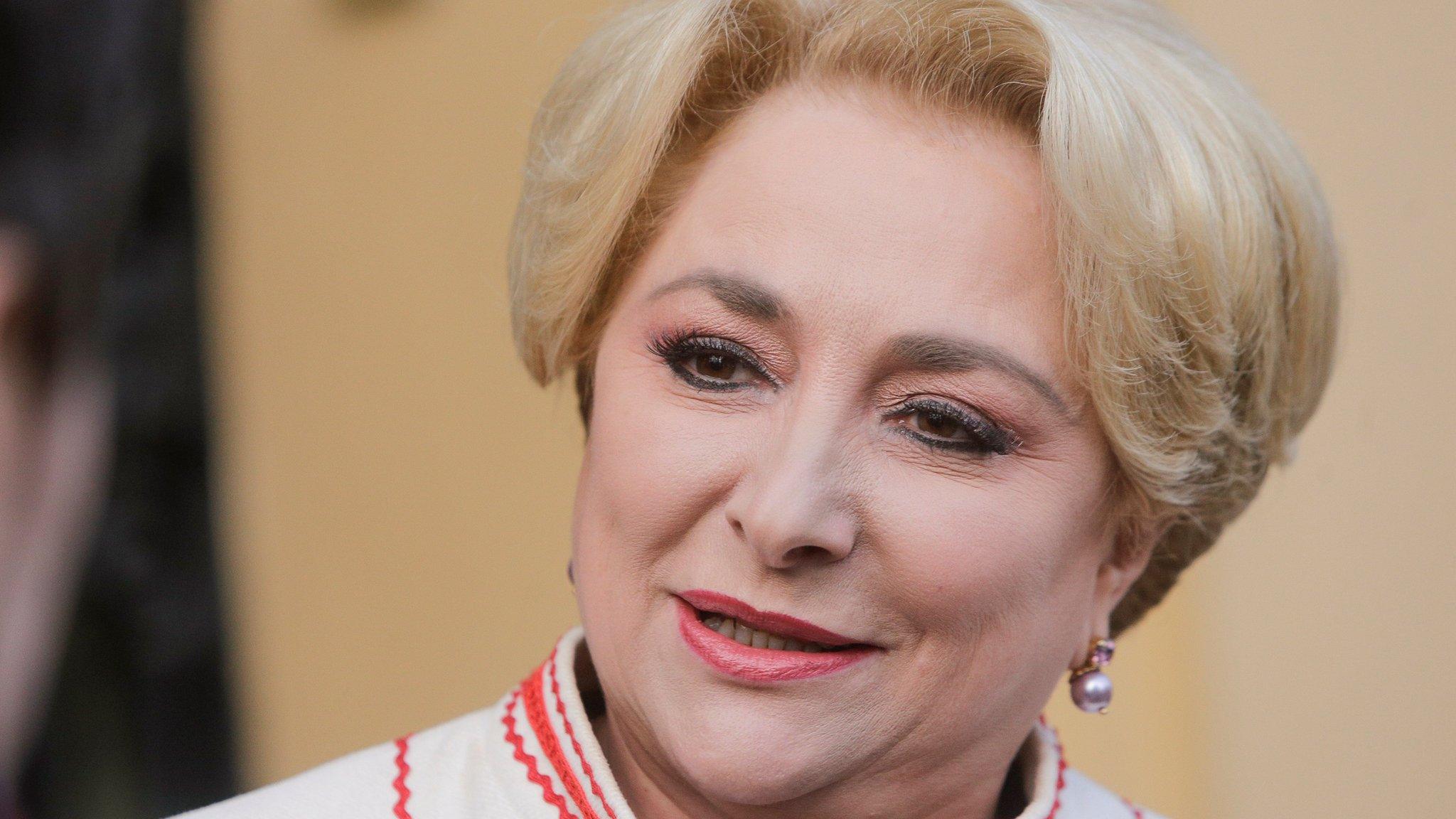
- Published19 September 2019
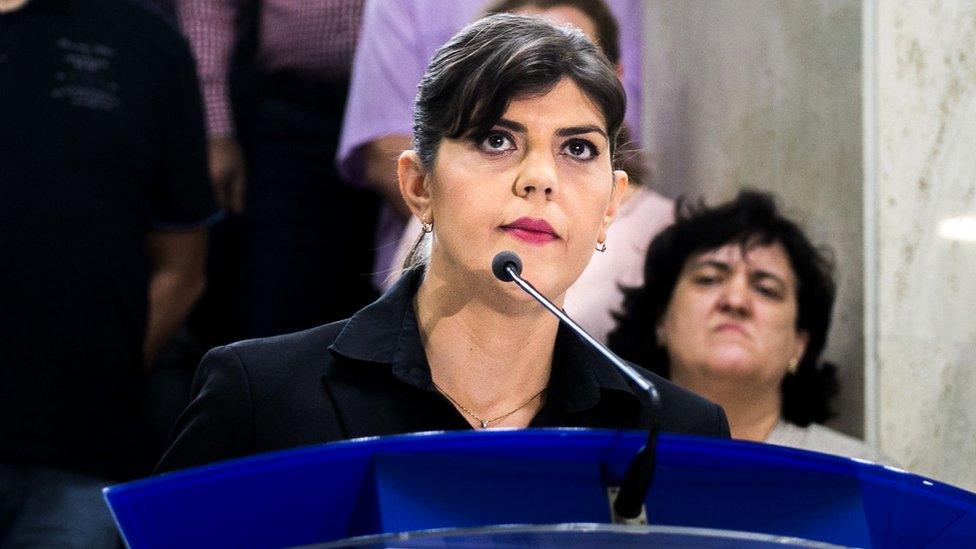
- Published27 May 2019
